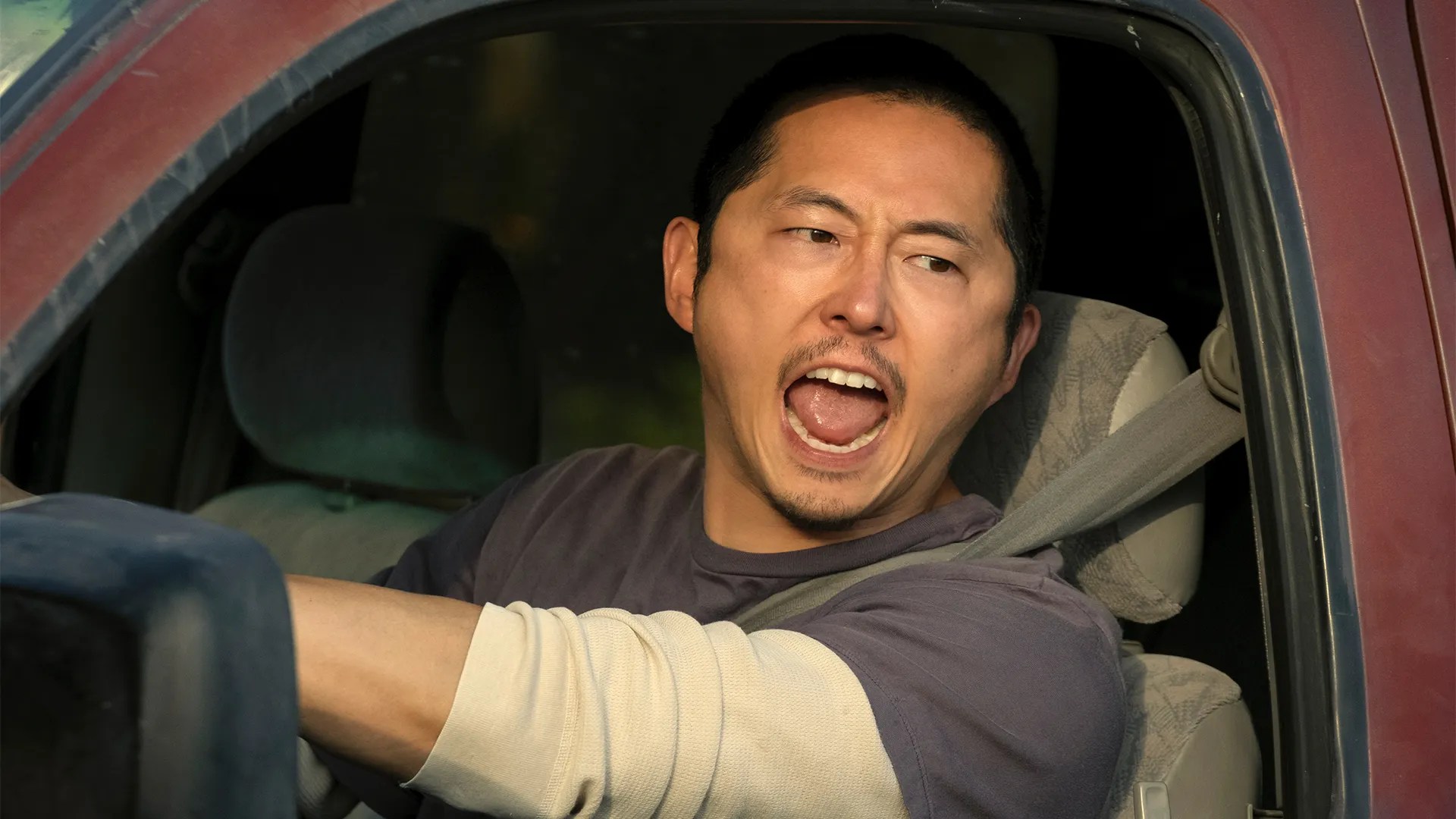Why Is Everyone Having Such Different Reactions to Netflix’s ‘Beef’?

Whenever I get really into a show, I tend to blot out social media and personalize my experience in the moment as much as possible. With Netflix and A24’s Beef, I didn’t dare look anything up about it until the 9th episode, when I was willing to be spoiled over a potentially devastating plot point.
What I found instead, after scoping out Google, was a variety of opinions that could ultimately be put into two categories: those who found immense catharsis within the show and loved it, or those who called it a “hard watch” and struggled to get through it (yet still enjoyed it). Yes, these are very generalized categories, but I just wanted to give you the gist of what people are talking about out there.
As someone who’s spent a great portion of her adult life processing trauma, I didn’t think Beef was difficult to watch at all—intense, sure, but not necessarily difficult. Unlike some other dark shows, like The Last of Us, I felt like Beef was actually a much more gratifying watch, since it takes a very humanistic approach to rage and catharsis.
The show centers around a road-rage incident that then spirals out of control, yet it goes deeper than that. As a character-focused show, we’re constantly shown why the protagonists, Amy (Ali Wong) and Danny (Steven Yeun), do what they do. Their lives are hard, and they don’t know how to fix their problems themselves without lashing out at someone else (or, often, themselves). Moreover, nobody really seems to get them, no matter how surrounded they are by family and “friends” on a daily basis.
This only further exacerbates their feelings of alienation, which in turn heighten their feelings of rage towards their perceived “aggressors.” While yes, most people aren’t provoked to the dangerous levels these two get to over the course of the show, I think these are problems that a lot of people go through, hence why the show pokes a lot of fun at “new age” toxic-positivity mindsets: positive thinking won’t fix years and years of pent-up trauma.
However, some critics and viewers really seemed to struggle with the source material. They said they had a hard time getting through each episode and would often have to take long breaks, with some straight up quitting the show. Considering the nature of the show itself, and the story it was trying to tell, I found all of these reactions incredibly telling. They spoke to the effectiveness of the show’s actual writing.
I think Beef is one of those rare shows that effortlessly mirrors one’s woes back to them, and I think this can elicit a lot of strong feelings within viewers, in ways that most shows aren’t able to evoke. When we sit down to watch TV, we don’t usually expect to be greeted with our own internal problems; we’re usually just trying to zone out for a bit and relax. However, for some people, it really does feel good to get this kind of validation, which is why so many people are singing the show’s praises.
While yes, some parts of the show are gritty and hard to swallow, they’re ultimately presenting us with a very real look into the trials and tribulations we internally go through every day, often with no real outlet. For some, I can see why this would be overwhelming to grapple with. For others, it’s a relief.
Of course, there are also those people who might be more like George, Amy’s husband (Joseph Lee): those whose problems aren’t as dark and consuming as Amy and Danny’s. They might watch a show like Beef and be utterly bewildered by everything going on, because to them, it simply doesn’t make sense. While George does have troubles and insecurities of his own, like any human being, he’s also lived a comparably charmed life with little need for examination.
As a result, he’s quick to discount Amy’s emotions and accept the title of “good husband” when juxtaposed against her “broken, crazy wife” shenanigans. Some criticisms of the show similarly seem to discount the whys of the main characters’ actions, because they simply don’t get it.
And no, I don’t think there’s a “right” way of viewing this show. What I’m getting at with all this is how all of these varied reactions are so tied in with the core message of the show itself: that this darkness and pain is very real, and that people aren’t alone in feeling it, even if not everyone understands. It’s just another testament to how great this show is.
For the record, if you’re at all curious about the show and want to give it a shot, but might be afraid of its subject matter—truly, honestly? It wasn’t that bad. I say give it a shot, then report back here.
(featured image: Netflix/A24)
Have a tip we should know? [email protected]
